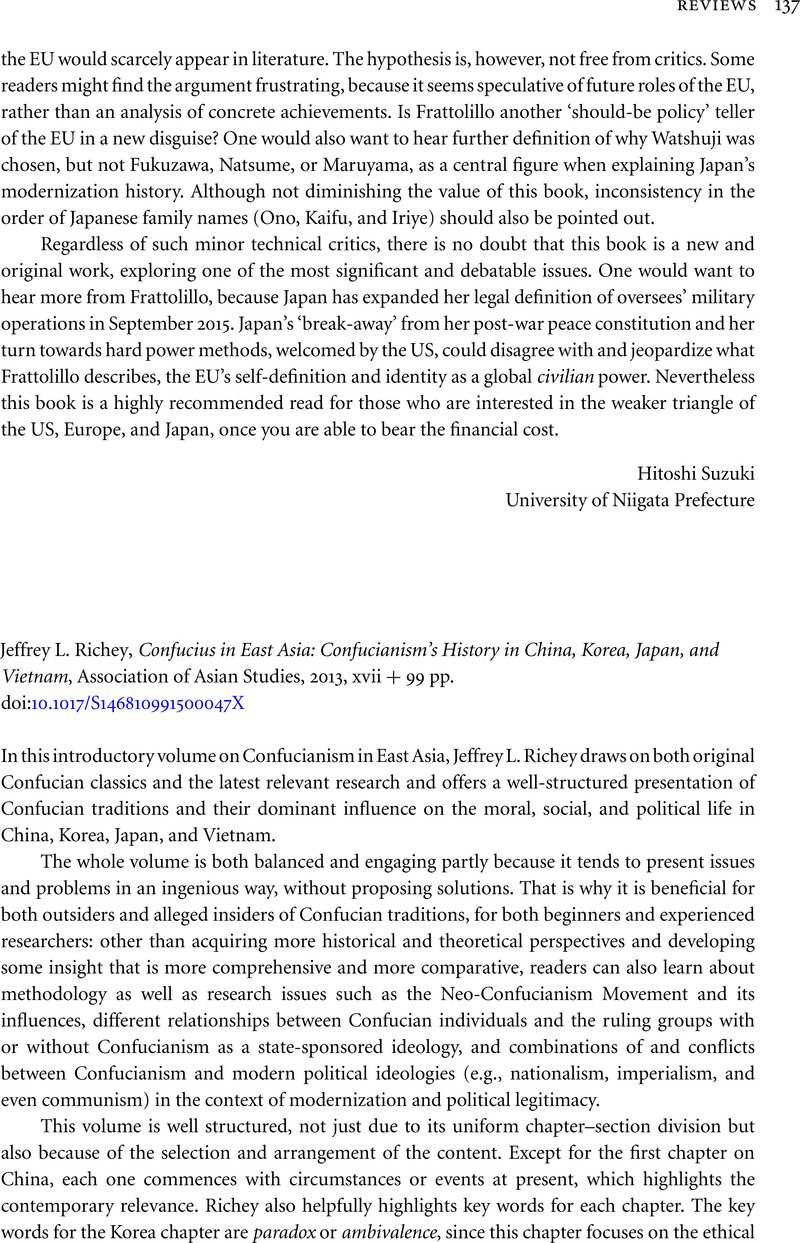No CrossRef data available.
Article contents
Jeffrey L. Richey, Confucius in East Asia: Confucianism's History in China, Korea, Japan, and Vietnam, Association of Asian Studies, 2013, xvii + 99 pp.
Review products
Published online by Cambridge University Press: 29 January 2016
Abstract

- Type
- Reviews
- Information
- Copyright
- Copyright © Cambridge University Press 2016
References
1 For an intensive discussion and discrimination between the two, see Tsung-san, Mou, Onto-cosmological State of the Original Heart/Mind and that of Human Nature (《心體與性體》) and On the Entire and Perfect Good (《圓善論》), Vols. 5-7 and Vol. 22 of The Complete Works of Mou Tsung-san (《牟宗三先生全集》), Taipei: Linking Publishing Co., 2003Google Scholar.
2 Although the English word Daoism or Taoism can be referred to as both a philosophical school (道家) originated with Laozi and a religious tradition (道教), in this book the author tends to regard it as no more than a certain religion; see the entries ‘Daoism’ and ‘Laozi’ in the glossary, pp. 89 and 90.
3 See Wing-Tsit, Chan (trans. and com.), A Source Book in Chinese Philosophy, New Jersey: Princeton University Press, 1963, pp. 84‒94Google Scholar.


